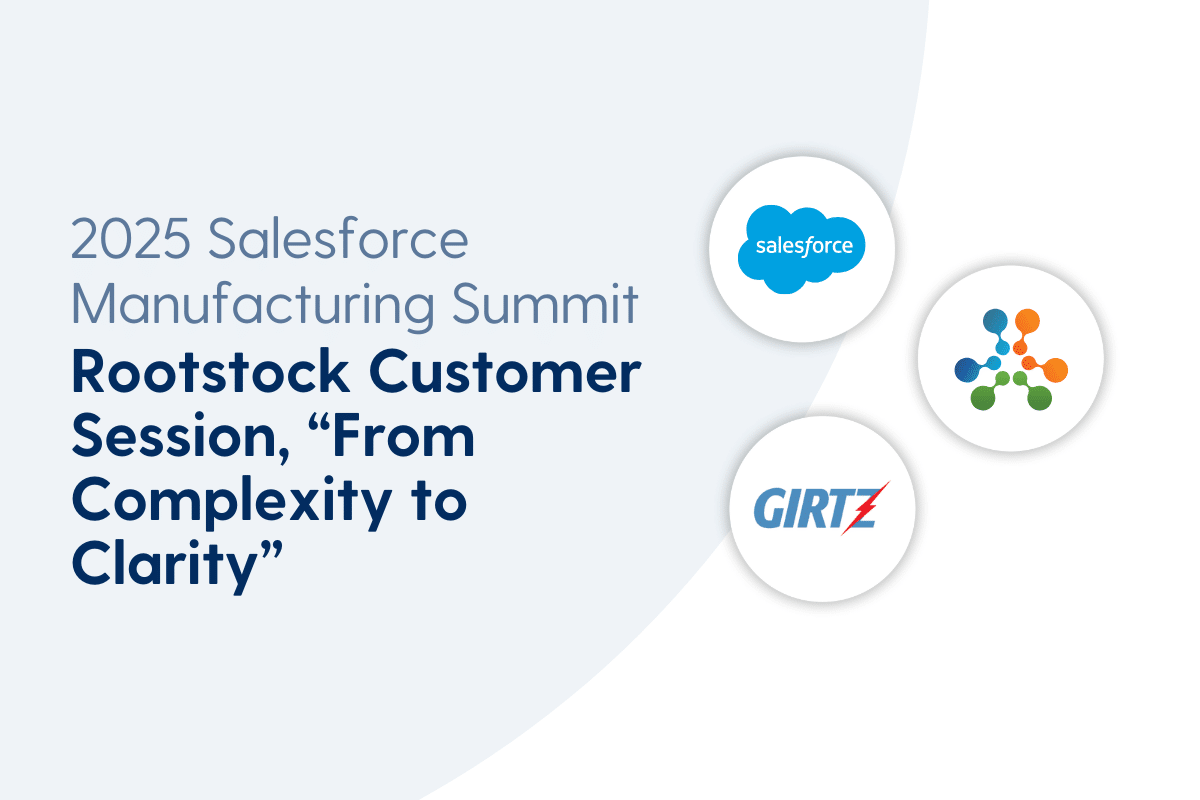
As the size and scale of the companies in the industry grow, the organizations will obtain a more sophisticated workforce that has expectations about the tools or work enhancements they need to perform. Companies in the cannabis industry are expanding around the globe. The need to be able to work together as one coordinated enterprise, even though they are in North America, Europe, Africa, South America, the Caribbean, Australia and Asia. How does one manage such an entity without having tools that support multi-currency and multi-division issues as well as industry-specific requirements?
Think about it. Cannabis companies have many of the same FDA requirements as food, drug or medical-device companies that require extensive quality controls and the need to follow Good Manufacturing Practices. What’s different is the reporting that each state requires in order to track cannabis material from seed-to-sale. This type of reporting can have nuanced differences by federal, state/provincial jurisdictions. Ultimately, regulating bodies want to ensure cannabis companies can account for the quality of their products, whether the cannabis is turned into a medicinal product, an edible or becomes spoiled or wasted as part of the manufacturing process.
One of the toughest obstacles of any business is efficient vendor and supply management. Such an endeavor is further complicated when the market is new and heavily regulated like cannabis. How does an organization break down the intricacies of getting its idea from a scribble on a notepad to a developed product delivered to market? The robustness of a company’s supply chain can often be the deciding factor separating success from failure. How can a company replace the multitude of legacy systems in its organization, one that has typically been built through acquisition, to a complete and comprehensive set of apps built for a larger, integrated organization?
At present, most cannabis companies are struggling to properly manage inventory and optimize production for the raw material they can acquire, so they need an industrial-strength ERP system to plan and produce more optimally. The other issue is making sure quality management, compliance and customer service are all embedded in one system. Legal cannabis companies compete on quality versus the black market, so management of value is critical to their business strategy. Therefore, ERP systems need to help them produce, test and ensure that they are producing superior products.
Furthermore, ERP needs to be tied to customer-service systems when a compliance issue does arise. Are they handling that issue quickly, documenting it correctly and tracing the problem to the source of the issue back into production? This is where detailed track-and-trace ERP capabilities with a call center and quality-management system is critical. Finally, reporting is a big issue. Beyond classic business reporting and FDA reporting, cannabis-specific reporting is required in each state.
Who Can Help?
Many companies that have entered this cannabis market have entry-level systems or use spreadsheets to manage orders and inventory. But, with a booming market, they’re now facing significant challenges around operations, inventory management, compliance and keeping up to date with changing regulations.
This is a significant growth market and it is no surprise that ERP vendors want a slice of it. There are several dedicated cannabis ERP vendors in existence. A recent ERP Focus article by Tom Miller identified six to begin with:
– Strimo
– ROAR (Guardian Data Systems)
– Viridian Sciences (SAP reseller)
– Cannabusiness ERP (NexTec Group)
Other Manufacturing ERP vendors are now introducing functionality for the market including Deacom and ProcessPro.
However, Rootstock Software differentiates from these often smaller vendors in that it is cloud-native and built on a massively scalable platform. It also provides not just the industry vertical functionality but has also invested in highly qualified and experienced professional services and customer success personnel to support customers through implementation, go-live and ongoing operations. Importantly, Rootstock is also an international vendor. The global legal marijuana market is set to be worth $66.3 billion by 2025 according to Grand View Research. Rootstock is well poised to take advantage of the growing market in both Europe and Asia, as well as North America.
How does the selection process of Salesforce in combination with Rootstock and ComplianceQuest to meet CRM, ERP and compliance requirements? Customers, some of the biggest firms in cannabis manufacturing, are particularly impressed by the maturity and simplicity of Rootstock which delivers the ability to meet seed to sale requirements. It also enabled them to leverage the Salesforce platform to meet their specific requirements, especially their differentiating cultivation processes. Additionally, the functionality of ComplianceQuest impresses others.
Customers are keen to adopt best practice processes. This enables them to meet, with the help of an internal team and consultancy, the aggressive timescales, often under six months, for implementation.
With the Rootstock cloud ERP solution and ComplianceQuest, customers are able to:
1 – Optimize production based on demand forecasts, production capacity and supplier constraints. This reduces time to market.
2 – Leverage “track and trace” capabilities for lot control and serial number tracking, raw material inspection, in-process checks and final inspections to be made and the generation of relevant Certificate of Conformance (CoC) reports.
3 – Manage inventory and costing across multiple locations by items, lots and serial numbers.
4 – Maintain compliance with Good Manufacturing Practices (GMP) and Good Production Practices (GPP).
5 – Benefit from single-cloud-platform interoperability with ComplianceQuest. It delivers enterprise-wide control and predictable quality so regulatory and product safety requirements are fully met.
6 – Reduce the cost of compliance while fully meeting industry expectations and regulatory agency (such as FDA and Health Canada) requirements.
7 – Improve profitability by reducing variability, eliminating waste, adhering to schedules and commitments and reducing cycle times.
8 – Leverage a worry-free infrastructure with data and document access anywhere, anytime and from any device.
9 – Complete visibility and control from a single pane across different divisions and locations.
Also, finding and retaining qualified manufacturing staff is difficult. Users believe that now that they have deployed Salesforce, they has a greater chance of retaining key staff wherever they are. The advantage of the Salesforce deployment is that they can solve the remote working, security and compliance challenges.
Of importance also was that the cannabis industry is one of the verticals that Rootstock is focusing on. Over the last few months, it has strengthened features required by the industry, meeting all the requirements requested. These include order processing, production management, supply chain management, loT and serial number track ability and traceability, compliance reporting, costing and financial management.
For instance, customers need their software to transform their processes related to operations, inventory and production overnight, meanwhile desiring seamless interoperability between their software partners..
For instance, the flow is one in which companies take seeds and cultivate them. And then they have to perform testing and QA to measure potency and ensure consistency in their product. They want to process orders efficiently and compete on both the service and quality fronts.
On the CBD and recreational fronts, after they’ve packaged their products, they’re fulfilling orders to retailers or selling it through their own store fronts or websites. And all cannabis companies – both recreational and medicinal – have to be able to track incidents, in which customers may have had an adverse reaction. This is a huge challenge, and lot and traceability features are a necessity..
Oftentimes, organizations have to track and trace capability where they can drill down from a CRM system. Companies also will have the service case. They have the serial number or the lot number and can track it in the ERP system. They can see if it was tested in the ComplianceQuest system. Then they figure out if they need to pull the whole lot.
The computer system helps facilitate precise production, inventory and supply chain management, enabling a company to be highly responsive to market needs. It lets the user to be setting the standard as a worldwide leader in the cannabis industry through a diversified approach to innovation, corporate citizenship, strategic partnerships and global expansion. With these system implementations, they will be technologically equipped to take its competitive advantage to new levels of market leadership.
Many states are deploying tools like Metrc to track and trace cannabis inventories and products to origin when there are health issues. Besides the compliance issues, there is the inventory shrinkage issue. Whenever it is needed to know from where certain plants originated or what product is missing, the ERP systems should be able to quickly track down the answers.
What Is the Ultimate Benefit?
Cannabis companies hope to benefit in a number of ways from the Rootstock/ComplianceQuest functionality and the Salesforce platform including:
1 – Competitive advantage over other cannabis producers. This gives users an advantage in time-to-market, license approvals and external audit readiness.
2 – Fast and flexible compliance in a quickly changing, regulated Industry.
3 – Demonstrable compliance with Federal and GMP/GxP Regulations.
Cannabis concerns now can have fully digital real-time informatics and ability to implement change in a highly transparent manner to meet the demands of our high-growth business. They can set the standard as a worldwide leader in the cannabis industry through a diversified approach to innovation, corporate citizenship, strategic partnerships and global expansion.
Cannabis organizations need a fully functional ERP solution on a platform that allows them to scale quickly. The market and regulations are also changing or at risk of changing constantly. These companies now have the flexibility to configure, change and upgrade the solution easily. They also have sophisticated track and trace functionality, including lot control and serial number tracking. Through Rootstock, users support the relevant regulatory reporting for Metrc, their federal governments and the FDA.
ABOUT THE AUTHOR: As the President of Rootstock Software, David Stephans provides strategic direction for all revenue channels, customer acquisition, solution architecture and services activities for Rootstock Software. Mr. Stephans has more than 25 years of manufacturing and technology experience and a proven track record of taking the customer experience to new levels of productivity and profitability.
ABOUT ROOTSTOCK: Rootstock Software is a worldwide provider of cloud ERP on the Salesforce Platform. Besides offering manufacturing, distribution and supply chain organizations on a single platform to grow and manage their businesses, Rootstock Software has additionally invested in developing specific industry functionality to extend its manufacturing and distribution-focused ERP solution for the cannabis industry. Customers include Aphria, which reported net revenue of $160.5 (Canadian) million in Q2 of 2021, an increase of 33 percent from the prior year quarter, and NuLeaf Naturals, one of the United States’ top pioneering hemp companies.






